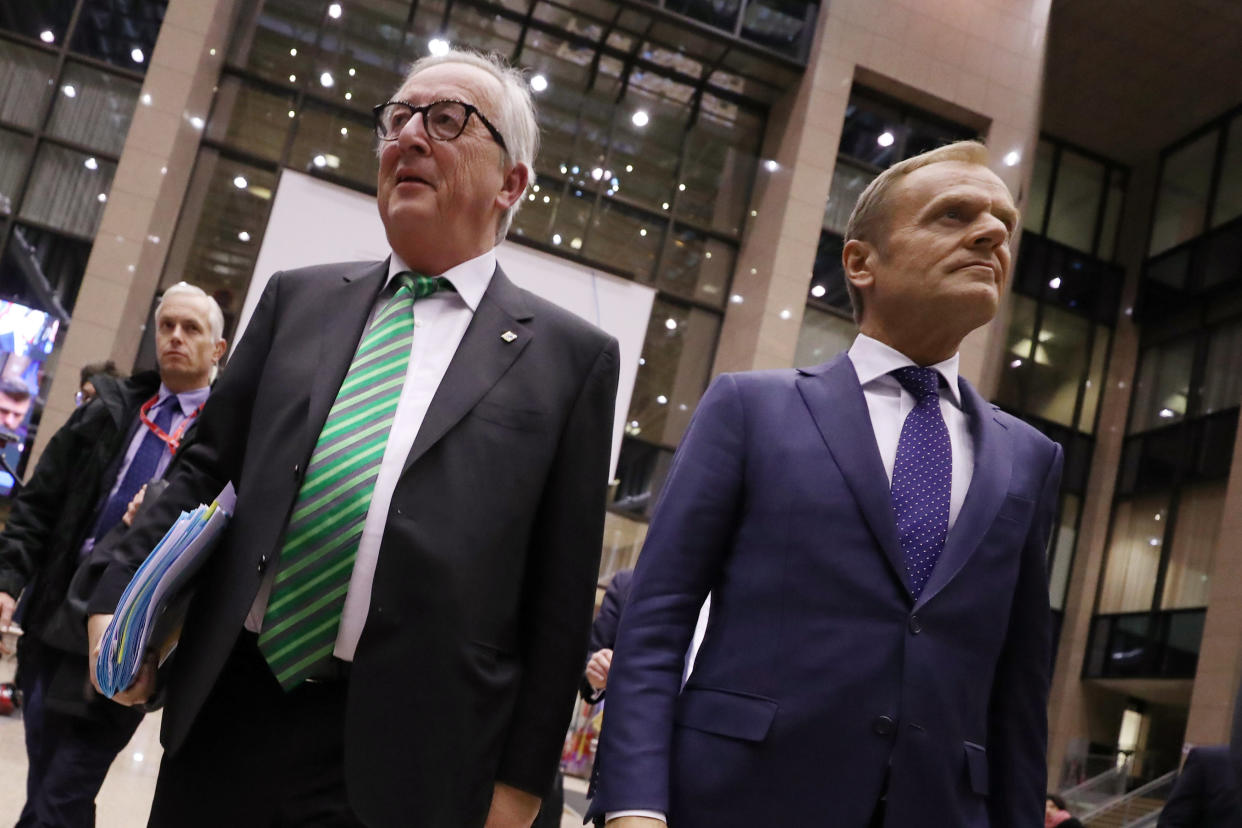Christmas pay rise means EU chiefs make UK average annual wage every month

The monthly paychecks of EU chiefs Jean-Claude Juncker and Donald Tusk are close to the average yearly salary for British workers, it has been revealed.
The presidents of the European commission and European council are now receiving ($37,000) each month after receiving a £495-a-month pay rise backdated to July 2018.
The average annual wage in the UK in 2018 is £29,500, according to the Office for National Statistics.
Juncker and Tusk’s annual pay of £352,800 is also more than double that of UK prime minister Theresa May, who made £150,400 last year.
The pay of the EU’s top brass is calculated automatically by the EU’s statistics authority based on the cost of living in Belgium and Luxembourg and the salaries of civil servants across member states.
That meant an across the board increase for top EU officials of 1.7% in 2018 – up from 1.5% in 2017, revealed German newspaper Bild.
The European commission’s six vice-presidents have seen their monthly salary go up by £450 to almost £27,700.
READ MORE: EU ramp up no-deal plans amid deep freeze in Brexit talks
The other 22 commissioners, including Britain’s Julian King, are receiving an extra £395, which takes their monthly salaries to around £23,900.
Top EU officials who run the various departments of the commission are now receiving more than €20,000-a-month (£17,991) for the first time.
That includes the likes of EU chief Brexit negotiator Michel Barnier and commission secretary general Martin Selmayr, who was called on to resign by the European parliament last week over a cronyism scandal.
However, the European commission insisted that their president and top officials’ pay rise represented a real-terms pay cut because of the rising cost of living.
A commission spokesperson said: “Due to inflation, this year brings an effective salary reduction by 0.6%.”
They also pointed out officials will pay income tax, social security contributions and an extra “solidarity levy” of up to 7%, which was introduced in the wake of the financial crisis.
But most EU officials pay a special EU rate of tax which is lower than the local rates in Belgium and Luxembourg.
READ MORE: EU blames Brexit in cronyism scandal


